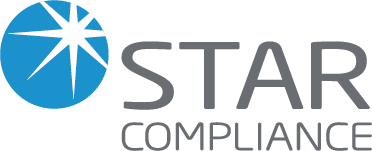Whether it’s through proposed amendments to existing rules or novel ways in which to approach such activity, the SEC continues to be laser focused on illegal insider trading—no matter what sector of the economy it's happening in. Steve Brown, Star's Head of Business Development and a longtime compliance officer, offers thoughts and solutions
In 2021, the SEC announced 28 insider trading cases, including a novel charge dubbed shadow trading by the SEC. The term arose out of a complaint the SEC filed against Matthew Panuwat, a former business development executive at Medivation Inc., a biopharmaceutical company. In the complaint, the SEC allege that moments after learning his company was being acquired, Panuwat purchased the securities of a competing company based on the belief that the competitor’s stock price would rise following the public announcement of the merger. Shadow trading, then, is a form of insider trading where a person uses confidential information about one company to trade in the securities of an economically linked company.
But shadow trading can be more challenging to identify than other instances of insider trading because the person trading on material nonpublic information, or MNPI, and the target stock are one-step removed from each other. It’s harder to make the connection between the two events because the connection is far less direct. Monitoring for shadow trading is possible, but it requires compliance teams to have at their disposal not only a broad range of data identifying securities linked to business entities, industries, and economic activities, but also the means to comprehensively gather and efficiently sift through that data—to analyze against employee trade activity, MNPI, watch lists, restricted lists, and/or blackout lists.
As we know, of course, not all insider trades are illegal. The question then becomes, how do companies manage employees buying and selling their own company’s securities to determine when laws are broken?
SECTOR HOOKS AND SURVEILLANCE
The means mentioned above, to gather and sift through all this disparate data, is technology. Compliance technology, in the form of software solutions built for compliance officers and configurable to meet the unique needs of each company. Star’s employee conflicts of interest monitoring platform is just such a piece of compliance technology—able to help companies in every industry corral, sift through, identify, and make sense of large data sets coming in for analysis from a wide range of internal and external sources, all in a single place.
The kind of data that needs to be plugged into a compliance platform like Star’s would be something akin to the Global Industry Classification Standard. GICS for short. GICS is a very popular business coding scheme. In the case of trying to pin down cases of illegal insider trading of any sort, including shadow trading, GICS gives compliance teams the ability to tag companies within a sector: establishing sector hooks in order to conduct surveillance. What it means for keeping tabs on employees trading in their own companies’ securities is, compliance teams can set trade restrictions or conduct trade reviews by industry sector. So employees who conduct activity within a specific industry or sector can now be restricted from trading personally in companies in that industry or sector, where conflicts of interest could all too easily arise.
FINDING THE SIGNAL IN THE NOISE
To detect illegal insider trading, whether it’s shadow trading, employees unlawfully trading their companies’ own stock, or some form yet to be named by the SEC, compliance teams need to be able to take a set of unrelated and disorganized data points and find the signal in the noise. If your company has ever been through a regulatory investigation or a full-blown insider trading case, the process undoubtedly took up a great deal of time and may have cost the company dearly in terms of fines and reputation. You may have asked what could have been done to prevent it from happening in the first place. The right compliance tech, fed the right data—with the right people riding herd over it—can’t be overlooked as a substantial portion of the answer. Public companies in any sector of the economy can be taken to task by regulators for illegal insider trading. Employee financial compliance isn’t just for financial institutions—a lesson no company ought to learn the hard way.



